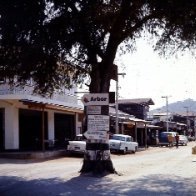Emergency Stops on a Motorcycle
-
Recently Browsing 0 members
- No registered users viewing this page.
-
Topics
-
-
Popular Contributors
-
-
Latest posts...
-
254
Do you know your wife/girlfriends body count?
I'm in Udon. Enjoying life. Soon a new city. You honestly sound miserable. I don't need to assume Fred. You told me you live in an Isaan village and hate it. Your memory must be going. You told us 20 times. -
254
Do you know your wife/girlfriends body count?
Six adds up to a group sitting in front of a mental health counselor. Not exactly the Rhodes scholars. -
191
Kissing on the mouth
Why is that, did he invite himself over to your house for dinner unannounced? He has previously admitted to "keeping a file" on certain individuals and strategically using that information as ammunition in future disputes. Take this example: I was once on a flight with my son (about 5 at the time). A few hours in, after the meal service had concluded, he had fallen asleep on my lap. My wife was also asleep beside us. I politely asked a flight attendant for a beer, having had just one earlier with my meal. Rather than a courteous response, the attendant was abrupt and dismissive, telling me to get it myself. I raised the issue with the purser, who brought me a beer without hesitation. MalcolmB later twisted this entirely benign incident, stripping it of context and turning it into something else entirely – which is typical of his behaviour, reframing this in future debates accusing me of: - Causing problems on a flight - Being a disruptive drinker while travelling - An irresponsible father under the influence with children in tow Another example: A young motorcyclist, perhaps 12-14 years old, pulled out of a side street and collided with the rear side of my motorbike, bending the number plate. The bike itself wasn’t damaged, and I was able to straighten the plate then and there. The lad apologised, and we left it at that – no harm done, no hostility, no report needed. Again, MalcolmB seized on this trivial event I'd described in a thread involving motorcycling, distorted the details, and in a different thread spun it into accusations such as: - Causing trouble with locals - Casing in traffic incidents - Lacking the skill to ride safely This is his pattern: take innocuous moments, warp the truth, and use them maliciously. It's calculated, dishonest, and entirely characteristic of him... And this is precisely how he 'weaponises personal information' as Trans highlighted, I've seen him do exactly the same with other posters. -
164
Pattaya Condos: History and Future
100% Leaver, only realised it reading this thread, all his old chestnuts in one place. For whatever reason I remember newnative's enjoyment and success with his property development hobby and ownership here used to really trigger him. Trying to call the future of the Pattaya direction of the property market is probably well nigh impossible given the sheer geographic and demographic diversity of the customers it attracts. Put simply, there is no typical buyer in my view. I haven't heard of any of the recent major developments struggling to sell out even though the prices are way above what I'd consider good value. So there still seems to be a demand from somewhere as far as I can see. Still no 1 year visa in Vietnam yet Leaver 😂 -
127
Travel Chiang Mai Crowned Asia's Best City, Bangkok Shines in Third
Love your attitude. Headed back in November.- 1
-

-
254
Do you know your wife/girlfriends body count?
Where are the 'others' to which you refer? They certainly aren't here, supporting your stance.
-
-
Popular in The Pub




.thumb.jpeg.d2d19a66404642fd9ff62d6262fd153e.jpeg)







Recommended Posts